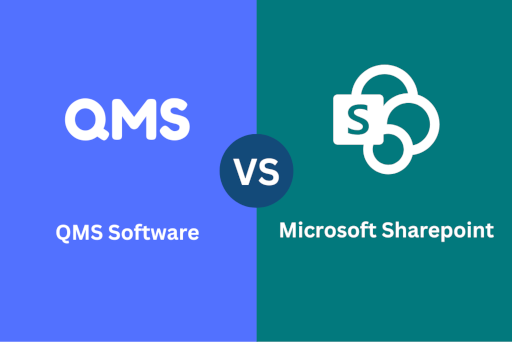The Importance of Talking to Other Companies Before Selecting QMS Software: What to Ask

Choosing the right Quality Management System (QMS) software is one of the most crucial decisions a company can make. It impacts compliance, product quality, and the overall efficiency of your operations. While it’s easy to get caught up in the feature lists and sales pitches, one often-overlooked step in the selection process is talking to companies already using the software. By speaking directly to current users, you can gain invaluable insights beyond what marketing materials or product demos reveal.
Here’s why this step matters and what you should ask during those conversations.
Why Talking to Other Users Is Critical
- Real-World Feedback
Marketing brochures and salespeople paint a rosy picture, but no software is perfect. Talking to current users helps you understand how the QMS functions in day-to-day operations. Users will be candid about any shortcomings, areas that need improvement, and whether the software lives up to its promises. These conversations provide a realistic view of how the system performs when it’s up and running, allowing you to set the right expectations. - Insights Into Implementation Challenges
The implementation phase is one of the most critical stages when adopting QMS software. Current users can offer insights into how smooth or difficult their implementation was. Were there any unforeseen challenges? Did they require a lot of customization, and how responsive was the vendor? Knowing this ahead of time can prepare you for similar hurdles and help you gauge how supportive the vendor will be during the transition. - Understanding Total Cost of Ownership
Price tags can be deceiving. The software might look affordable upfront, but are there hidden costs? Talking to other companies can reveal whether the software comes with unexpected fees, such as for additional users, customer support, or upgrades. You’ll also get a sense of how much ongoing maintenance or customization is needed, which can impact your budget long after the initial purchase. - Seeing How It Fits in Your Industry
While every company has unique needs, hearing from those in a similar industry or size range can help determine if the QMS is a good fit for you. If other companies in your sector are successfully using the software, that’s a strong indicator it will work for you too. On the flip side, if you hear consistent complaints from businesses like yours, it might be a red flag to reconsider your choice.
What to Ask Current Users
When speaking with companies already using the QMS software you’re considering, come prepared with thoughtful questions that will help you uncover the insights you need.
- How long did implementation take, and were there any unexpected challenges?
Understanding the timeline for implementation is critical for planning. Delays can set your organization back, and knowing what to expect can help you build realistic timeframes. If they encountered significant roadblocks, this information might help you avoid similar issues. - What kind of training and support did you receive?
Some software providers offer extensive training and continuous support, while others might be lacking. Ask about the quality and availability of customer support, as well as how much training the team needed before they could effectively use the system. - How often do you experience system downtime or glitches?
No one wants a system that constantly crashes or experiences downtime. Asking about the software’s reliability in a real-world setting will give you a clearer picture of its stability. - How easy is it to use for non-technical staff?
Even the most feature-rich QMS software is useless if it’s too complex for your team to navigate. Ask how intuitive the software is, especially for those without a technical background. If it requires a steep learning curve, it might slow down adoption and decrease efficiency. - What features do you find most valuable?
While vendors often highlight every feature under the sun, actual users will tell you which ones they use the most. This helps you determine which features will bring the most value to your organization and which may just be extras that you won’t use. - Were there any hidden costs or fees you weren’t aware of at first?
Ask if there were any unforeseen expenses after signing the contract. This could include fees for additional users, new modules, integrations, or premium support. - How responsive is the vendor when issues arise?
Good software should come with good service. If the company has had issues, how quickly were they resolved? Do they feel supported by the vendor? This will give you a sense of how the vendor treats its customers after the sale.
How to Find Companies to Talk To
If you don’t already have contacts using the QMS software you’re considering, there are a few ways to connect with current users. Start by asking the software provider for customer references. Look for case studies or success stories on their website and ask if you can contact those companies directly. You can also reach out to industry associations or online forums where quality professionals discuss their experiences with various tools.
Conclusion
Choosing the right QMS software is a long-term decision that can significantly impact your company’s efficiency and compliance. While product demos and marketing materials are helpful, speaking to current users of the software offers insights that you can’t get anywhere else. By asking the right questions and getting a realistic view of the software’s performance, implementation, and support, you’ll be better equipped to make an informed choice.
Trackmedium QMS can be a reliable solution to streamline your quality management processes, but don’t take our word for it—reach out to companies who have experienced its benefits firsthand.




